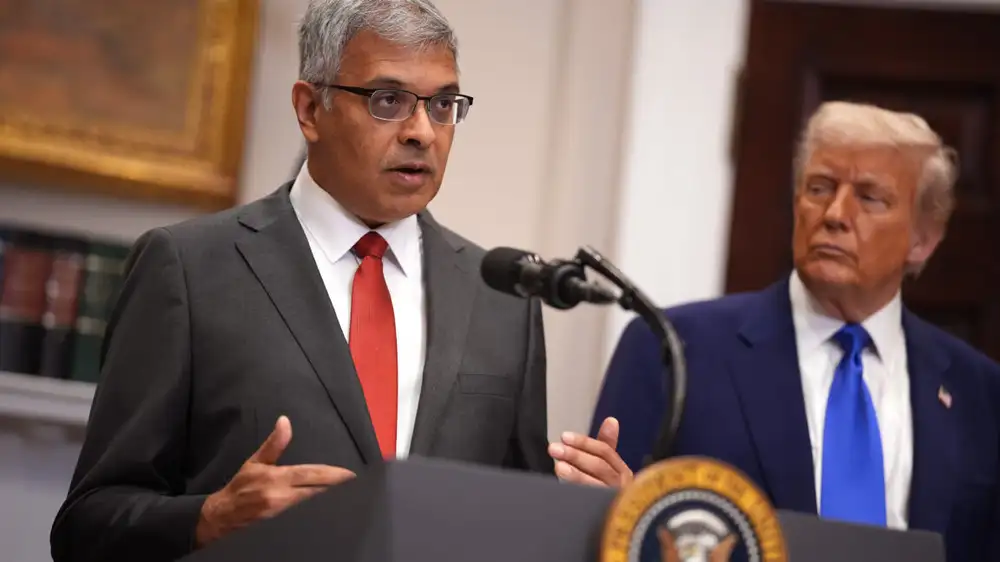Over 300 researchers from the National Institutes of Health have published a letter rebuking its director and the Trump administration for deep, politically motivated cuts to research funding, as well as disrupting global collaboration, undermining scientific review processes, and laying off critical NIH staff.
"We are compelled to speak up when our leadership prioritizes political momentum over human safety and faithful stewardship of public resources," the letter states, linking to independent news reports on the harms of NIH trials being halted and that the administration's cuts to the agency have cost, rather than saved, taxpayer money. Since January, the Trump administration has terminated 2,100 NIH research grants totaling around $9.5 billion and $2.6 billion in contracts, the letter notes. The researchers also accuse the administration of creating "a culture of fear and suppression" among federal researchers.
The letter describes the researchers' action as "dissent" from the administration's policies, quoting NIH Director Jay Bhattacharya in his congressional confirmation hearing as saying, "Dissent is the very essence of science."
The researchers take specific aim at Bhattacharya, a Stanford health economist who turned into a notable contrarian during the COVID-19 pandemic, which led him to his current role. In October 2020, Bhattacharya, along with two colleagues, penned a letter titled "The Great Barrington Declaration," named after the Massachusetts town where it was signed. The declaration called for having only the most vulnerable—specifically the elderly—adhere to pandemic restrictions, while letting everyone else resume life as normal, with the virus spreading largely unabated.
Backlash to the idea was quick, with the World Health Organization Director-General Tedros Adhanom Ghebreyesus immediately calling it "unethical."
"Allowing a dangerous virus that we don’t fully understand to run free is simply unethical. It’s not an option," Tedros said in a news briefing at the time.
“A risk”
In the letter on Monday, NIH researchers speak directly to Bhattacharya, writing, "We hope you will welcome this dissent, which we modeled after your Great Barrington Declaration." They titled the letter "The Bethesda Declaration," named after the NIH's location in Maryland.
"Standing up in this way is a risk, but I am much more worried about the risks of not speaking up," Jenna Norton, a program officer at the NIH's National Institute of Diabetes and Digestive and Kidney Diseases, said in a statement. "If we don’t speak up, we allow continued harm to research participants and public health in America and across the globe. If we don’t speak up, we allow our government to curtail free speech, a fundamental American value."
The organization leading the NIH dissent, Stand Up For Science, published a second letter on Monday in support of the Bethesda Declaration. The support letter is signed by over a dozen Nobel laureates and former NIH directors Jeremy Berg and Joshua Gordon.
Tomorrow, Bhattacharya will testify before the Senate Appropriations Committee on the Trump administration's 2026 budget proposal for the NIH, which proposes a cut of about 40 percent to the agency's $48 billion budget.

 Google Pixel 10, potrebbe tornare una funzionalità amata di Pixel 4
Google Pixel 10, potrebbe tornare una funzionalità amata di Pixel 4